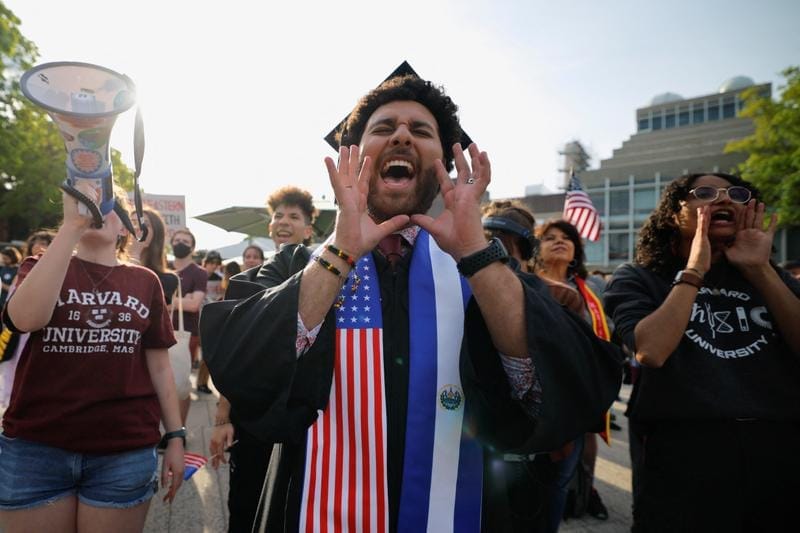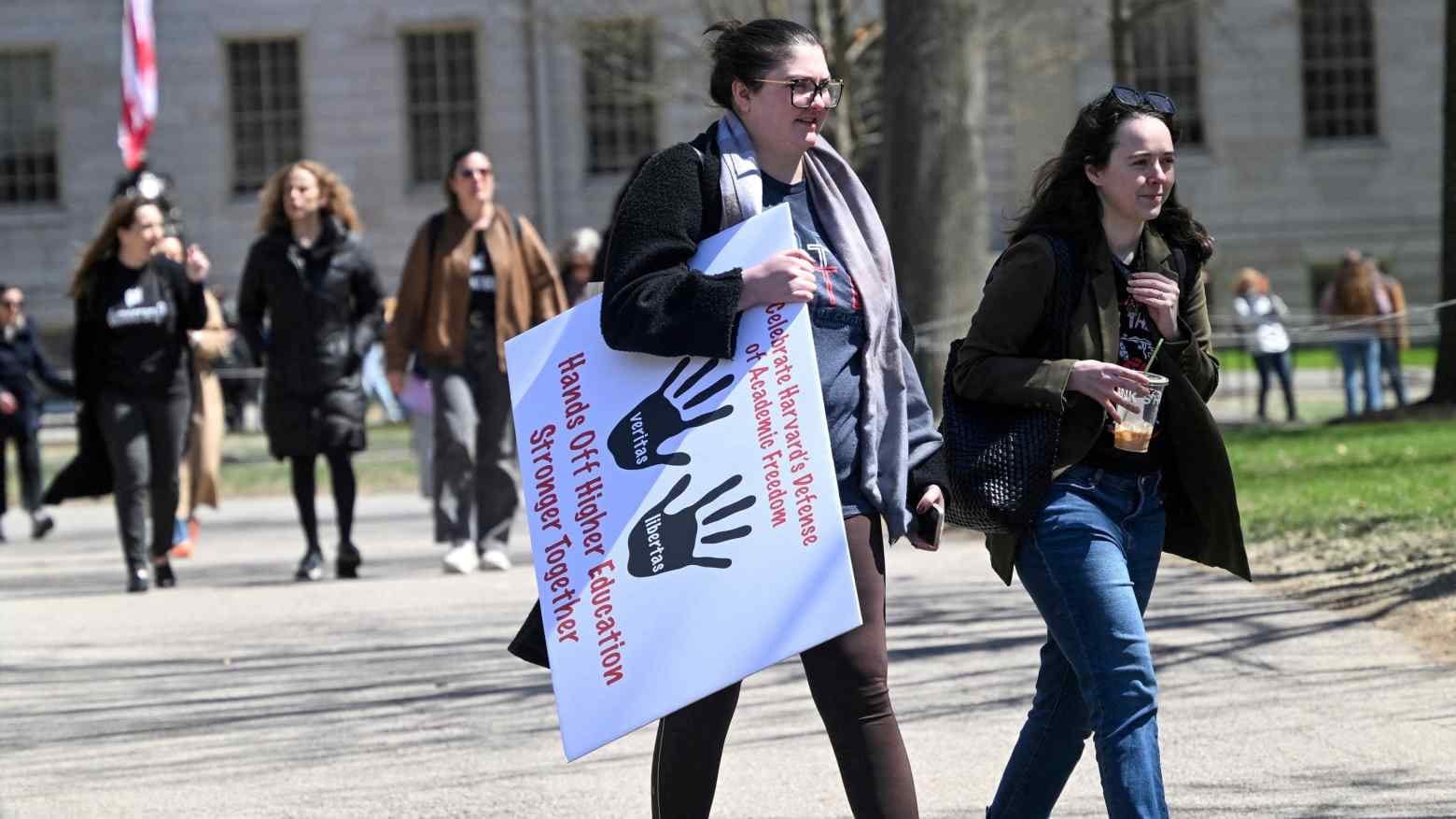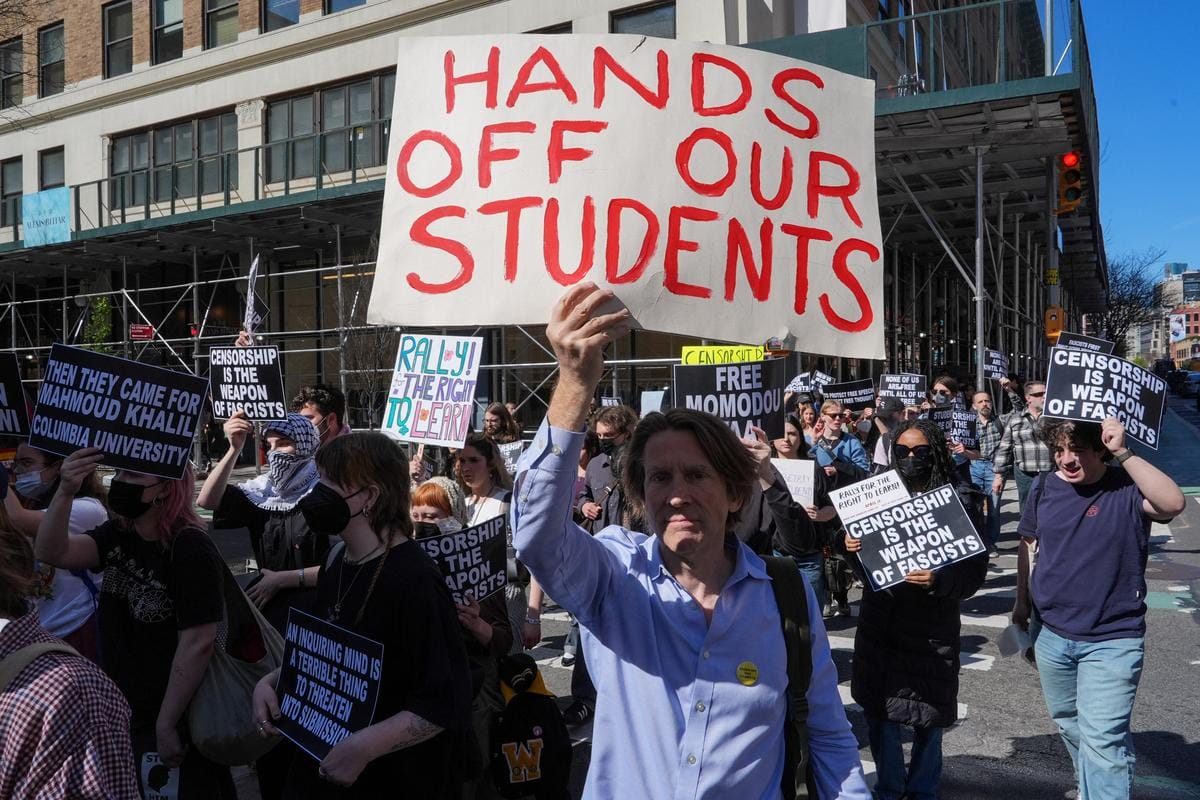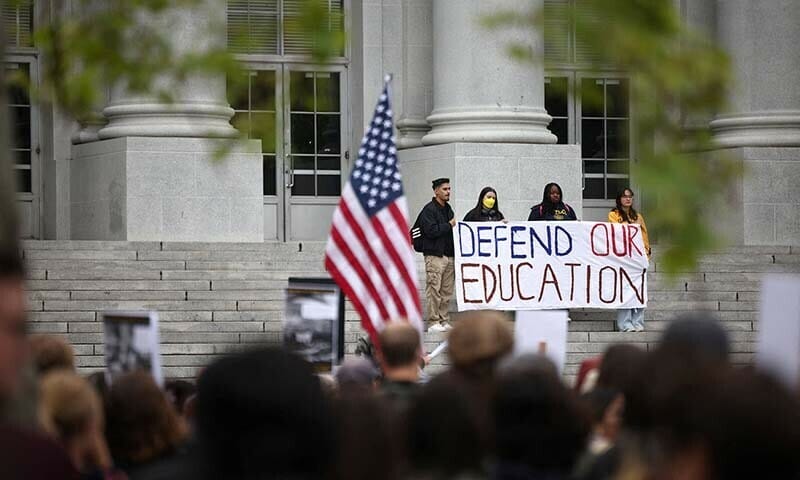Since early 2025, at least 1,800 international students across more than 280 U.S. colleges and universities have faced sudden visa cancellations or terminations of legal status. These actions were often carried out without prior notice or explanation, leaving students in legal limbo and academic uncertainty.
The crackdown has primarily targeted holders of F-1 academic visas and J-1 exchange visitor visas. While some cases involve minor infractions, such as unpaid traffic fines, others appear linked to student activism, political expression on social media, or participation in campus protests.
The scope and severity of the revocations expose deep fractures in legal due process, institutional autonomy, and the United States’ long-standing role as a global leader in academic freedom.
Legal challenges escalate over U.S. student visa revocations
The abrupt wave of visa revocations has triggered a flurry of legal challenges across the United States. The American Civil Liberties Union (ACLU) has filed lawsuits accusing the Department of Homeland Security (DHS) of violating due process by terminating student visas without proper notice or explanation.
Colleges and universities have also raised alarm. Administrators report confusion over the lack of communication from federal agencies and say the revocations have caught institutions off guard. Many warn that such actions could discourage future international enrollment, undermining both academic diversity and the global reputation of U.S. higher education.
U.S. suspends global student visa interviews over social media screening rules
As of May 28, 2025, the U.S. State Department has temporarily suspended the scheduling of new student visa interviews worldwide. The directive, issued by Secretary of State Marco Rubio, is part of the Trump administration’s broader initiative to tighten national security protocols through expanded vetting procedures.
The directive, issued by Secretary of State Marco Rubio, is part of the Trump administration’s broader initiative to tighten national security protocols through expanded vetting procedures.
The new policy mandates comprehensive reviews of social media profiles for all applicants seeking F (academic), M (vocational), and J (exchange visitor) visas. While officials describe the move as a safeguard against potential threats, critics argue it adds another opaque layer to an already burdened process.

The timing has intensified anxiety among students hoping to begin programs in the upcoming academic year. With interview appointments on hold and timelines uncertain, many face the risk of deferral or derailment.
University administrators and education consultants warn the suspension could have sweeping implications, especially for institutions with large international cohorts. For now, consulates remain open, but the window for student mobility appears to be narrowing.
The fallout is becoming personal.
‘What the hell Is this?’
The lives of hundreds of international students have been upended, without warning, without due process, and often without explanation.
Anjan Roy, a graduate student in computer science from Bangladesh, was one of many caught in this invisible dragnet. He described the moment he discovered that his visa had been revoked by the U.S. government:
‘I was in literal shock, like, what the hell is this?‘
Others describe a similar sense of disorientation. Ronit Sidana, a student from Punjab, said his lifelong ambition of studying in the U.S. has eroded into uncertainty.
Others describe a similar sense of disorientation. Ronit Sidana, a student from Punjab, said his lifelong ambition of studying in the U.S. has eroded into uncertainty.
‘I’ve spent years dreaming about studying in the US, but within a few months, my enthusiasm has vanished,‘ he told University World News.
Krish Isserdasani, a 21-year-old undergraduate from India at the University of Wisconsin-Madison, was arrested for disorderly conduct in November after a verbal argument while walking home from a bar. The local district attorney declined to press charges, yet on April 4, the university notified him that his database record had been terminated. A federal judge in Wisconsin later ruled the government’s action was likely unlawful. Isserdasani has since filed a complaint for declaratory and injunctive relief against Kristi Noem, in her official capacity as Secretary of Homeland Security.
In some cases, the consequences have been even more severe. Ranjini Srinivasan, a 37-year-old PhD candidate at Columbia University, was six months away from completing her degreewhen she was ordered to leave the country. Her visa was revoked by the U.S. Department of State, citing vague national security concerns. No evidence has been disclosed publicly.
‘Apart from attending a handful of low-level protests and posting about it on social media, I have had little contact with events on campus. So, there is no explanation why I was targeted,‘ she said in a statement.
In South Dakota, Priya Saxena, an Indian PhD student, nearly missed her graduation after her visa was terminated in April. The government cited a “criminal record,” though court documents reveal her only infraction was a minor 2021 traffic violation. Her attorney argued that it was not a deportable offense under immigration law. A federal judge issued an injunction, allowing her to finish her program.
Shreya Mishra Reddy, a senior tech professional pursuing an executive program at Harvard Business School, now faces uncertainty over completing her final module. ‘I’m on the verge of finishing my dream course at Harvard Business School. With Trump’s crackdown on foreign students, I don’t know if I’ll be let back on campus,’ she said.
These cases reflect a broader trend. Immigration attorney Matthew Maiona, a Boston-based lawyer, now fields multiple calls a day from students in similar situations.
‘We thought it was going to be something that was unusual. But it seems now like it’s coming pretty fast and furious,‘ he said.
Higher education leaders are voicing concern about the erosion of due process.
‘The threat of deportation without a hearing is something new and alarming,’ said Sarah Spreitzer, director of government relations at the American Council on Education.
As the climate grows more unpredictable, Srinivasan offered a stark warning that has quickly taken on symbolic weight for many international students.
‘..What has happened to me can happen to you…‘
For many international students, the fear now goes beyond losing their visas. It signals a growing distrust in a system they once relied on.
And it is. Across the country, fear is spreading. For many international students, the fear now goes beyond losing their visas. It signals a growing distrust in a system they once relied on.
The Harvard strike: 72 hours, 6,800 students, and a battle for academic freedom
On May 22, 2025, the Trump administration took the unprecedented step of revoking Harvard University’s certification to enroll international students, effectively barring new foreign students for the 2025–2026 academic year and forcing current ones to transfer or risk losing legal status. This decision impacts nearly 6,800 international students, constituting 27% of Harvard’s student body.

DHS justified the move by accusing Harvard of promoting violence, antisemitism, and ties with the Chinese Communist Party. The administration demanded that Harvard comply with six specific conditions within 72 hours to regain its certification. These conditions include providing detailed records of foreign students’ activities, including any protest involvement over the past five years.
Harvard responded sharply to the federal decision, calling it a direct threat to academic freedom and the university’s core mission.
In an official statement, Harvard President Alan Garber said:
‘We condemn this unlawful and unwarranted action. It imperils the futures of thousands of students and scholars across Harvard and serves as a warning to countless others at colleges and universities throughout the country who have come to America to pursue their education and fulfill their dreams.‘
Harvard has announced plans to challenge the decision in court, while federal judges in multiple states issued a nationwide injunction on May 23, 2025, temporarily blocking the administration from stripping international students of legal status. The ruling prohibits arrests or deportations based solely on visa classification.
Geopolitical tensions are now shaping university campuses, where student visas have become tools of leverage and international students are caught in the middle of a broader struggle for global influence.
The developments have sparked concern across academia and the global education community, and Harvard is just one institution. Across borders, the ripple effects of these decisions are already being felt.
Humanitarian fallout in the new geopolitics of education
Geopolitical tensions are now shaping university campuses, where student visas have become tools of leverage and international students are caught in the middle of a broader struggle for global influence.

As Washington tightens its grip, the political cost is beginning to show. Other countries are moving swiftly to welcome displaced students and scholars, turning this moment into a contest for global influence, research leadership, and the trust of a rising generation.
At the same time, humanitarian concerns are intensifying. For many who fled conflict or persecution to study in the United States, the message has become increasingly clear: protection is conditional, and legal status can disappear without warning.
Trust, leadership, and the collateral damage of U.S. visa policies
Speaking to the broader impact on international students, Aaron Reichlin-Melnick, senior fellow at the American Immigration Council, put it bluntly:
‘None of them have done anything wrong. They’re just collateral damage to Trump.‘
As legal and moral questions grow louder, one truth is clear: the damage is already done. International education now stands at the heart of global diplomacy, and the world is watching. If the United States fails to course-correct, the cost won’t just be lost enrollments, but a decline in trust, leadership, and global influence.
Note: This article is based on information available as of May 2025. For the most current updates, please refer to official sources and legal advisories.
About the author(s)
Farhan has a Master’s degree in Psychology from the University of Lucknow, India. He has over three years of experience in writing, mental health support, and academic content. He’s worked with Chegg India, helping psychology and psychiatric nursing students, and has also volunteered as a peer listener on platforms like 7 Cups. His work has been published on Kitaab.org, The Muslim Vibe, Al Jumuah Magazine, and Cambridge Open Engage.
He is interested in topics like Islamic psychology, mental health, trauma, neuropsychology, and education. He also writes about social issues, student advocacy, and political topics from a multidisciplinary perspective. Outside of work, he’s a professional footballer and athlete, which has taught him the value of discipline, teamwork, and resilience.





